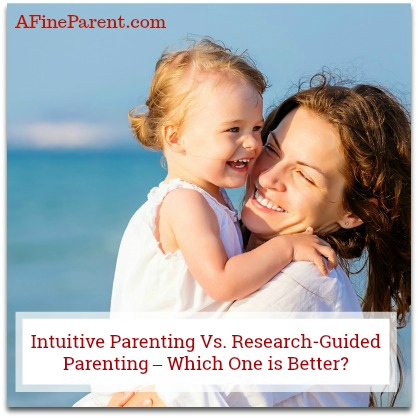 The boys are fighting. Again. Probably over a Lego minifigure, if history is any guide.
The boys are fighting. Again. Probably over a Lego minifigure, if history is any guide.
Part of me thinks, This time I’m going to stay out of it. I’m going to have them work it out themselves.
And then my youngest begins to shriek and I can’t stand it. My gut tells me I need to intervene.
I swoop in and try to determine who “owns” it and when they can’t stop yelling at each other long enough to even hear me I impound it, adding it to the bin of other impounded toys.
Did that solve anything?
They are still yelling – at me, now.
They are still angry.
They still haven’t learned anything. (Except possibly that the youngest’s shriek will send me running into the room.)
A lot of parenting is going with your gut. Does this feel right? Does this fit in with how I function as a human being? Does this fit in with my vision of how I want my children to act and behave?
Most of the time my gut is right. I have a strong sense of self and well-honed instinct. If my gut told me to go and comfort my crying baby I did it. If my gut told me they were fussy because they were hungry I gave them a snack. When my instinct told me to back off and let my second grader struggle with that math problem a little longer I listened.
And most of the time it worked out.
Sometimes, however that gut instinct was actually me being triggered. That shriek that sounded off like an alarm bell in the middle of the boys’ argument? It turns out that is a huge trigger. That isn’t me following my instinct. That is one of my buttons being pushed and me responding like a well-trained dog.
Okay, I am not actually a well-trained dog. It turns out there is a ton of scientific research out there that has been done on parenting. Thousands of websites, research papers, and books have been researched and written on parenting and child development.
There are numerous experts out there who can tell you, in obsessive detail, about how the brains of children develop and how our parenting choices effect that development. There are also experts that can help me learn how to recognize how my own brain works and how to disarm those trigger buttons of mine.
Any of that research could have been helpful to me during the argument between my two boys. Let’s break down that argument and my response using just four researchers and their theories.
Learning my Trigger Points
Let’s look at me first, because this isn’t so much about why they are arguing, but more about how I am reacting to their arguing. I am clearly being triggered. And it’s not just one trigger, but two triggers.
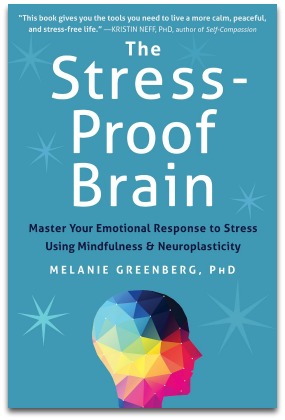 The first is parenting stress.
The first is parenting stress.
As parents we are under stress all the time, either from work or kids or the daily hassles of home responsibilities.
Dr. Melanie Greenberg, a psychologist who specializes in stress management and relationships and author of The Stress-Proof Brain, says that when we experience a stressor our amygdala in the center of the brain activates our fight or flight mechanisms. We are triggered to respond instinctively and immediately as a survival mechanism.
So, my son shrieks and I jump into action.
However, while my amygdala is telling me “danger!”, the area of my brain known as the pre-frontal cortex knows that this isn’t a life-or-death situation. He’s just mad and letting everyone know it!
The problem that it takes the rest of my brain a minute or two to click into gear and tell the amygdala to stop pumping out adrenaline.
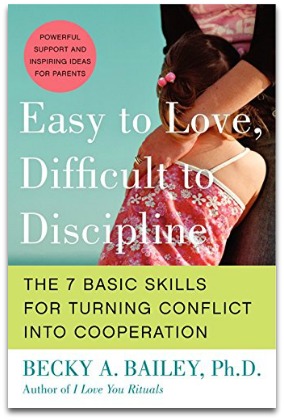 Dr. Becky Bailey, an expert in child development at Conscious Discipline.com and author of Easy to Love, Difficult to Discipline, has a great tool for helping to shift my brain over.
Dr. Becky Bailey, an expert in child development at Conscious Discipline.com and author of Easy to Love, Difficult to Discipline, has a great tool for helping to shift my brain over.
It is called STAR: Smile, Take a deep breath, And Relax.
You actually smile, which is a physical change that creates a mental change. You take a deep breath to give your pre-frontal cortex time to click on, and you get yourself to relax by telling yourself, “I can handle this.”
Practicing STAR helps me to take control over myself and keeps my aggressive fight or flight energy from escalating an already highly emotional situation.
And when I’m not stomping down the hallway in mommy-monster mode I stop them from shutting down and going on the defense.
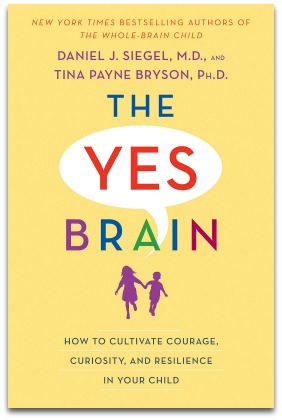 Dr. Tina Payne Bryson, a psychologist and co-author of The Yes Brain: How to Cultivate Courage, Curiosity, and Resilience in your Child, recommends putting yourself in your child’s shoes to see what is going on from their perspective.
Dr. Tina Payne Bryson, a psychologist and co-author of The Yes Brain: How to Cultivate Courage, Curiosity, and Resilience in your Child, recommends putting yourself in your child’s shoes to see what is going on from their perspective.
This is modeling empathetic behavior. Research shows that this open and receptive response from me triggers the mirror neurons in them and can help them to connect to me and eventually, with each other.
Misbehavior or a Call for Help?
Once I’ve gained control over my reactions I can focus on what actually is going on between my sons.
Is this really about a toy or even disrespect for each other’s property? Maybe. But science tells us: maybe not.
Dr. Becky Bailey believes that while we might look at this kind of behavior as a sign of disrespect, we need to shift our perspective about behavior in general. She believes all behavior is some form of communication and we, as parents, need to ask ourselves what our child is trying to tell us.
For instance, when my sons shout at each other, one of the things they are communicating to me is that there are still many skills that I need to teach them…
Problem solving, peaceful conflict resolution, and empathy are the first that come to mind. Experts also recommend starting with one skill and then branch out from there. So, I’m going to focus on empathy.
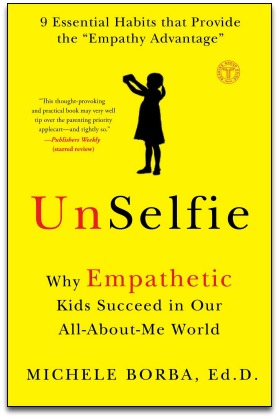 Dr. Michele Borba is a psychologist and counselor with a special focus on raising compassionate kids and the author of UnSelfie: Why Empathetic Kids Succeed in our All-About-Me World.
Dr. Michele Borba is a psychologist and counselor with a special focus on raising compassionate kids and the author of UnSelfie: Why Empathetic Kids Succeed in our All-About-Me World.
She is a go-to expert for anyone who wants to teach their children empathy. Her number one definition of empathy is “being in a moment of ‘we’.” It’s about feeling with someone and fueling good relationships.
The bonus is that our children are hardwired for empathy. We just need to teach and model empathy so our children can learn how to develop that caring mindset.
There are lots of very simple ways to practice empathy. In my case, I want my sons to feel empathy for each other. Dr. Borba points out that nagging and shaming them will actually reduce empathy. So, I’m sad to say, my rushing into the room and yelling, “why can’t you just get along with each other?” is really having the opposite effect. I still have a lot of learning to do.
As a start, I am mindfully modeling kindness. I am saying “please,” I have started a charity box, and I have begun asking my boys how they were kind today. Practicing the skill of empathy, Dr. Borba tells us, rewires the brain and develops that caring mindset.
And one day (sooner, rather than later, I hope) I’ll have sons that won’t let Lego mini-figures come between them, turning them into mean spirited mini-monsters!
Coupling Instinct with Science
I find that the more mindful I become about using the research that is out there the more nuanced my instinctive reactions become.
My buttons aren’t being triggered as much.
On my way to stomping down the hallway I am breathing and telling myself, “I can handle this.” I am trying to remain calm and remembering to try to see things from their point of views. I am thinking about teaching them the skill of empathy and how I can tie empathy into this conflict resolution.
All of my research is beginning to inform my intuitive reactions.
It’s all about baby steps – the slow and steady path to raising my kids to be compassionate, happy adults.
2-Minute Action Plan for Fine Parents
Right now write a list of 3 to 5 of your triggers. Think about situations with your kids that have sent you careening right over the edge. What was it about those situations that pushed your buttons. Be specific because those are your triggers.
Under those triggers write down “Breathe” and “I can handle this.” You can even write down Dr. Bailey’s STAR plan (Smile, Take a deep breath, And Relax) to help you take control of your amygdala and reengage the rest of your brain.
Also consider how you can start “being in a moment of ‘we’” more often with your child. And what you can do together to start building empathy between the two of you, and between your child and their siblings!
Long-Term Action Plan for Fine Parents
Think about your own parenting style. Are you more of an intuitive parent? Or are you a research guided parent? How can you work to combine the two? What kind of balance can you strike?
Are there moments you could use your gut more? Can the latest research in this field help your intuition be more nuanced?
I am so glad you enjoyed it and found the information useful! I work at home and so I am right with you in having my children competing with work for my attention. 🙂
Thank you, good article. Cognitive and interesting techniques. Since my work allows me to work at home at times, the noise of my children sometimes prevents me from focusing on my work. I try your advice too. Thank!